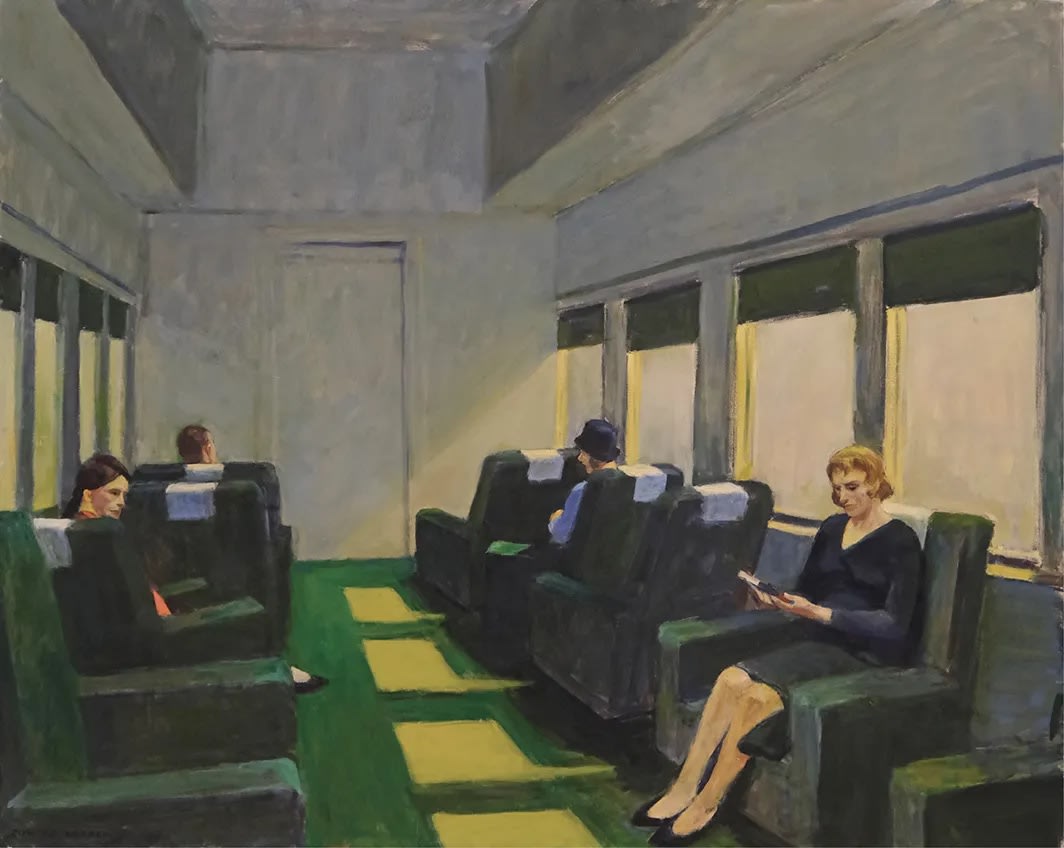Edward Hopper, Chair Car, 1965, oil on canvas, 40 × 50″. © Heirs of Josephine N. Hopper/Licensed by Artists Rights Society (ARS), New York
Share
- X
- Tumblr
To read the article, please click here.

